Francois Girard’s film of my novel is up for the second largest clutch of awards at the Canadian Oscars.
Full list here.

Francois Girard’s film of my novel is up for the second largest clutch of awards at the Canadian Oscars.
Full list here.

The alternative baroque festival has just laid out its summer offerings.
Top highight: Diva Joyce singing Monteverdi, Händel, Gluck, Hasse, Cesti and Dowland.
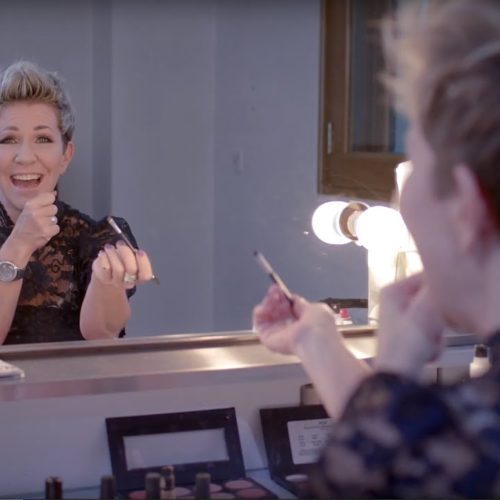
Not loud enough, we guess, to disturb the fools on the Green Hill.
This is the most innovative of his ideas in today’s season announcement:
Collaborative Partners: A New Artistic Leadership Model
In their inaugural season together, Esa-Pekka Salonen and the San Francisco Symphony introduce a new artistic leadership model new to the orchestral world, anchored by an extraordinary group of eight Collaborative Partners from a variety of cultural disciplines. This group of visionary artists, thinkers, and doers will join with Salonen and the San Francisco Symphony to embark on a future of experimentation by collaborating on new ideas, breaking conventional rules, and creating unique and powerful experiences.
The San Francisco Symphony’s Collaborative Partners comprise composer and pianist Nicholas Britell; classical vocalist and curator Julia Bullock, who has put social consciousness at the forefront of her work; flutist, educator, and creator of new and experimental music Claire Chase; composer, guitarist, and co-founder of The National Bryce Dessner; violinist, musical director, and artistic trailblazer Pekka Kuusisto; composer and multi-faceted collaborator Nico Muhly; artificial intelligence entrepreneur and roboticist Carol Reiley; and jazz bassist, vocalist, and undefinable artist Esperanza Spalding.
“I’ve never achieved anything on my own. Every achievement that I’m really proud of has been a result of collaboration,” says Esa-Pekka Salonen. “This art form that we all love and respect needs new thinking, fresh thoughts and ideas, new ways to involve the community, and different ways to enhance the experience. I’m looking to create a different kind of framework, and these wonderfully creative people in the team will help me in that process.”
“This is the first time that I know of where a major arts institution is implementing such a democratic mode of making decisions,” says Julia Bullock. “Instead of just a few people contributing their voices to what repertoire is being presented to audiences, how it’s being presented, and how the community will be engaging with the work, now those decisions will be coming from many places. I believe that in addition to Esa-Pekka and those of us who have been named collaborators, every single person who is behind the scenes at the San Francisco Symphony is going to have an important role to play in influencing this change in institutional dynamics.”
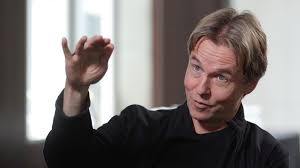
It looks like the entire upper deck of the Vienna Opera will be cleared before Bogdan Roscic lands in the summer as its next manager.
The latest to follow Dominique Meyer to La Scala is the highly rated ballet chief Manuel Legris, it was learned tonight.
Legris will succeed Frédéric Olivieri in Milan at the end of the year.
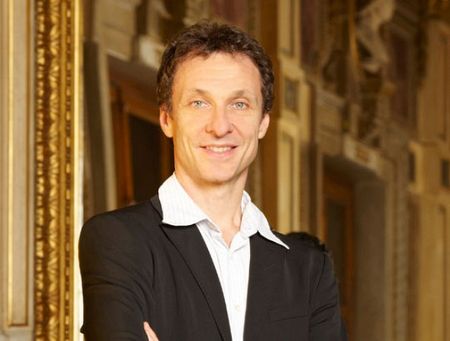
The pianist Gabriela Montero pays tribute to her teacher Hamish Milne, who died sadly at the weekend.
When I arrived at the Royal Academy of Music (London) in 1990, I had stopped playing for nearly 2 years.
I had “survived” close to 9 difficult years with my teacher in Miami, and wanted nothing to do with music. I was trapped inside my musical, round-the-clock brain and saddened that I lived through an adolescence devoid of beauty or inspiration. This became clearer as I grew older.
I wasn’t supposed to study with Hamish. Bored, and back in Venezuela after Miami, without any purpose or money, I decided to risk it and send a tape of my live Rachmaninov 3 in Caracas (I think I was 17) to see if the RAM would accept me. They did, and gave me a full tuition scholarship.
But, as the beginning of term was approaching and I had not as yet been able to fund my way to London, Hamish told me the RAM didn’t really think I would make it over. The possibility that I would indeed arrive, seemed remote, and they almost gave up on me. I was initially assigned another professor, and then passed on to Hamish. He recounted, “They told me there was a tape from a wild Rachmaninov 3 performance. Talented girl, but without any resources. She’ll never make it over. You take her if she does come.”
I ended up being pretty lucky. I did make it, thanks to help from the British Council and the Venezuelan government of the time, and a few, wonderful people involved.
Now, Hamish was stuck with me.
What a student needs most from a teacher is a role model. Someone who inspires and teaches you to read between the lines. Someone who will guide you to the core, the meaning of a piece, a moment or even self-reflection.
Someone who is able to carry you to a higher understanding of the story-telling, can demonstrate, show you the path, and wait for you at the finish line while you make your way up to meet them.
Hamish was that person to me. His gentle manner, his mumbled, clever descriptions of a person or a work, his architecturally beautiful examples at the second piano in his study at the RAM and his love, support and motivation will always be etched in my memories.
My twenties was not an easy time for me. I still could not figure out who I was or what I was meant to do, yet he always accepted my undisciplined, under-prepared, “off the cuff” lessons as my way of struggling to find my inner voice, while he watched and would say, “You’re like a wild horse, Gabriela. You have all this passion and energy. You need to learn to control it.”
He was so quiet, a pianissimo tone, and I would inevitably ask,” WHAT? WHAT DID YOU SAY?” and he would repeat it, with a little smile in his loudest possible voice. It was very funny and I always felt embarrassed to force him to repeat everything twice, rarely rising above a mezzo forte.

It always seemed to me he wanted to make himself invisible. From his delicate speaking to his elegant slenderness, his strength and fire would surface when he played the Russian composers. I always thought he resembled Rachmaninov. His physique and his playing as well. He loved them all. He also loved the Russian pianists: Virsaladze, Berezovksy, Lifschitz.
I learnt the power and importance of silence, of nothingness, in music. He spoke to me of composers I had never been acquainted with, of performers I had never heard off. I felt, and was, completely ignorant. A silly, talented girl from Venezuela who used too much hairspray and make-up, and played and learnt everything as quickly as possible. Always rushing to that finish line. He brought me back to loving music and never quite understood how I could play so uninhibitedly after recounting my stories of those years of studying in Miami and how much they had hurt me. I suppose he expected me to show my scars more visibly, which I didn’t. I think he was a bit perplexed by all my contradictions.
I only wish I had heard him more in concert. I only wish we had performed that two-piano concert in Caracas I had promised. I only wish I had been wiser and more prepared to understand and digest his teachings. I wish I had appreciated his musicianship more, which I have as I’ve grown older, because I’ve slowly connected the dots as to what all of this means.
He knew how much I loved him and respected him. The last time I saw Hamish was at the hospital in 2017. I visited him, gave him the gushiest of cards I had written for him, stayed a while until I felt he was uncomfortable with my witnessing his frailty and the grim surroundings of the hospital. I told him how he had changed my relationship to music. I had a feeling it would be the last time I would see him.
Hamish was relieved I had found a wonderful partner in Sam. I suppose he was also relieved of not having to endure further accounts of my failed, sometimes tormented and often misguided relationships for 20 years. He would listen and smile, then mumble some advice that I probably didn’t really want to hear, so I would not ask him to repeat it. I would nod, just to move on to more important topics.
We had a lovely friendship and, I would like to believe, a mutual respect. His greatest compliment to me was that he was proud of me. That meant more to me than my prize at the Chopin Competition. He knew where I came from, and I have a sense that, somehow, he was quite surprised that I organised my life and made something of it. I believe he always hoped I would, but wasn’t quite sure that it would happen. He saw me grow up, jump off cliffs, climb back up and finally fly after a bumpy lift-off.
There is so much more I could write, but I have to go back to practicing. Hamish would be surprised of how often I sit at the piano nowadays. Back when I was a student, I would spend more time at the RAM bar, chatting with my friends than sitting on a piano bench.
I’d like to end this little memoriam by sharing a typically-Hamish anecdote. One of the last times he heard play was at Cadogan Hall with the Academy of St. Martin in the Fields Orchestra. I was performing Beethoven’s Concerto No. 5 and ExPatria. Sam relayed to me that he was visibly moved by ExPatria, and when he asked him what he had thought of my Beethoven, he paused for a moment and through that wide and cheeky smile, replied: “She doesn’t do anything I taught her. Everything Gabriela does goes against convention, but when you have a performance as compelling as that, who the hell cares!!”
I just laughed, because I knew what he meant. It was his way of him still telling me, after all these years, to reign in “that wild horse you are”, while acknowledging that there is room in music, between the lines and outside of the rules, for the personal voice.
This Saturday I’m playing in Belfast, and the concert will be live on the radio. It would be my honor to dedicate that performance to my dear Hamish.
I will always miss him.
Were you a student of Hamish Milne? Do post your memories below.
The violinist posts:
Spring impressions with a new feathered friend! What clever bird – it opened up the zipper of my jacket!!
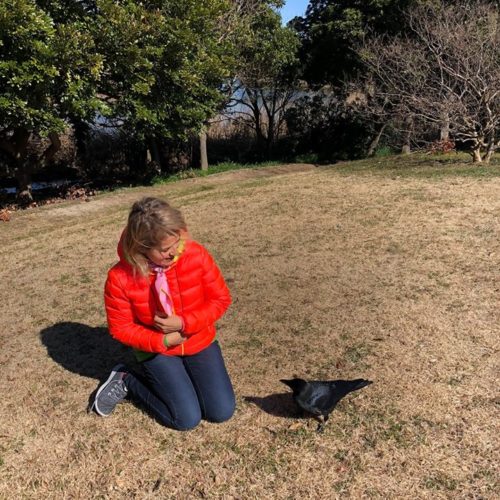
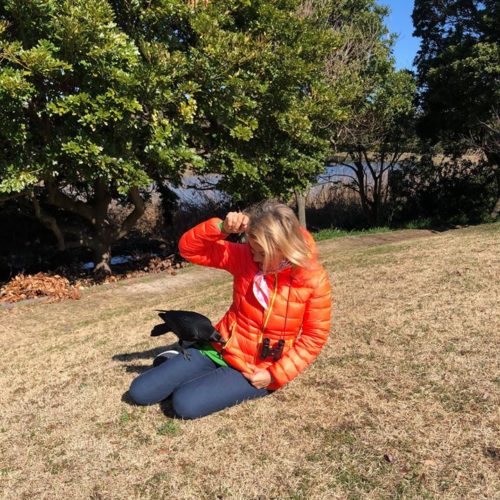
The best bit is when the impurrtinent puss tries to get rid of the conductor.
This happened in Istanbul last weekend.
The band is the CRR Symphony Orchestra.
Longer version:
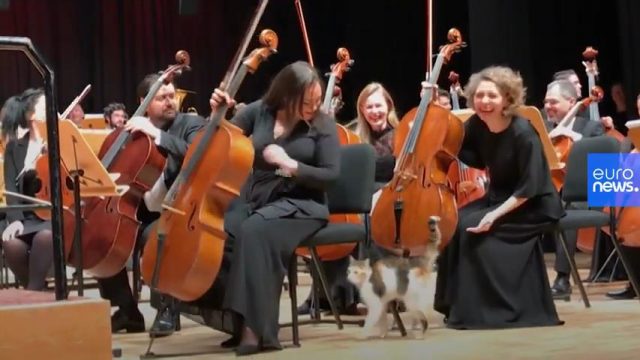
The British conductor has bowed out of the Vienna Opera Ball ‘due to serious illness in the family’.
We wish all concerned a full recovery.
James Conlon deps.
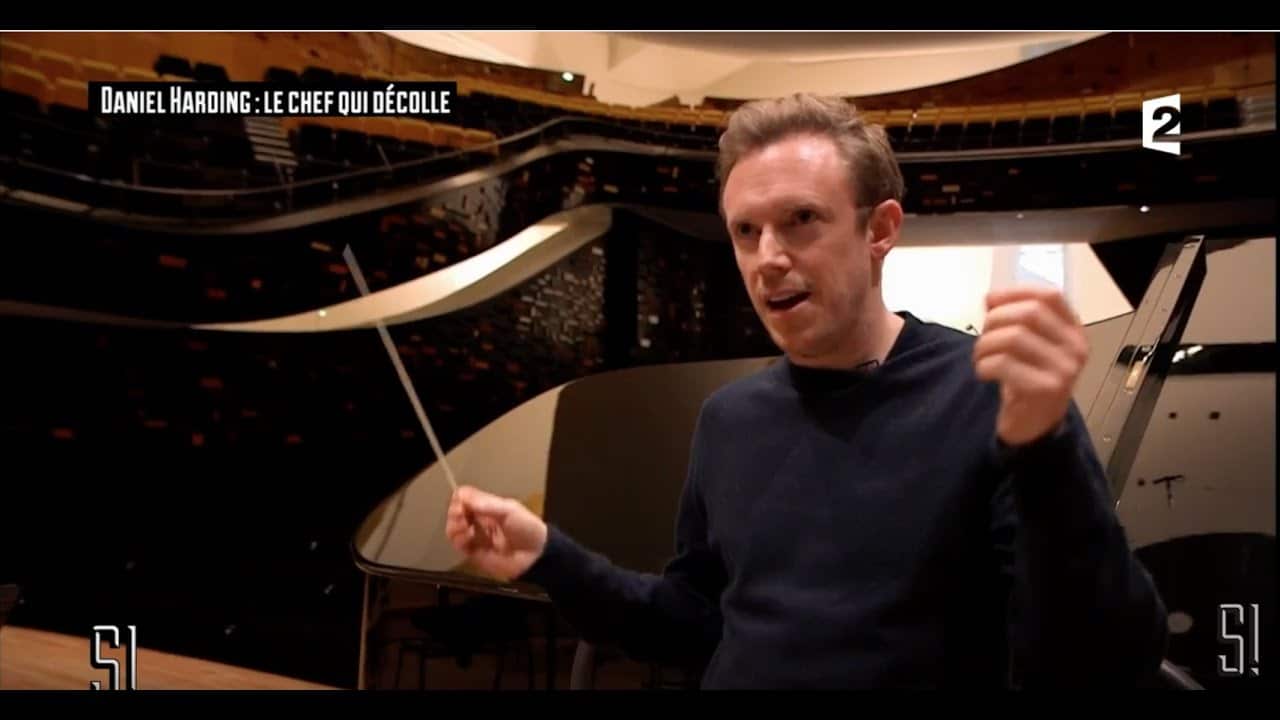
press statement:
Auf Grund eines schweren Krankheitsfalles in der Familie muss Daniel Harding leider die musikalische Leitung der künstlerischen Eröffnung des Wiener Opernballs am 20. Februar 2020 kurzfristig absagen. Daniel Harding bedauert, bei diesem besonderen Anlass nicht dabei sein zu können, muss aber derzeit bei seiner Familie sein.
An seiner Stelle übernimmt dankensweiterweise James Conlon. Der international gefragte US-amerikanische leitete zuletzt Die Zauberflöte im Dezember 2019 an der Wiener Staatsoper und dirigiert heute Abend die Premiere von Tschaikowskis Eugen Onegin am Teatro dell’Opera in Rom.
Due to serious illness in the family, Daniel Harding is unable to conduct the Vienna Opera Ball on 20 February 2020. He is deeply sorry to miss this special occasion, but must be with his family at this time.
James Conlon has kindly agreed to conduct the opening ceremony of the Ball. At the Vienna State Opera, the internationally acclaimed American conductor has recently led performances of Die Zauberflöte (December 2019).
The Hong Kong Philharmonic, which has not played in weeks, has cancelled a tour to Japan and Korea. Here’s what the musicians were told today:
Dear Musicians, You all follow the news these days and we hear and read all kind of different information concerning the CONVID-19. We don’t know any more whom to trust, CNN, SCMP, WHO, the governments in China or Hong Kong? Who knows in the end if travelling in an airplane is dangerous or if rehearsing and performing as a group of 100 people will increase the chance of a mutual infection? I don’t, so asked Gabriel Leung, former board member and Dean of Medicine at HKU for advice. He suggested “not to proceed with the tour, there is too much uncertainty how the virus will spread over the next few weeks in Hong Kong and Korea”. He is an expert, so we considered his advice seriously and decided to postpone the tour. This goes in agreement with the presenters and also with Jaap, who is not only worrying about the health situation, but also, as many of you as well, about the artistic shape of the orchestra after not having rehearsed and performed together for more than 6 weeks now.
So we hope for your understanding for this decision, which is also very disappointing for us. But there is a chance that the tour, or at least the 2 concerts in Japan, might be postponed to Week 43 (22. – 28. June 2020). Please keep yourself available for that week until further notice.
Concerning our schedule in Hong Kong the venues are now closed at least until 2. March 2020 and there will be no orchestral services until 8. March 2020. We will inform you about any further development.
Passports can be collected in the office, please get in touch with Yik Wing.
Stay healthy and safe, hope to see you again soon! And let me know if you have any questions or comments. Please do not share this internal info as long as we did not announce it officially, thanks.
Best wishes, Benedikt
Benedikt Fohr, Chief Executive

The opera house in Venice has recovered – just about – from the last inundation.
But officials warn the the next high water could be too much to withstand.
Read here.
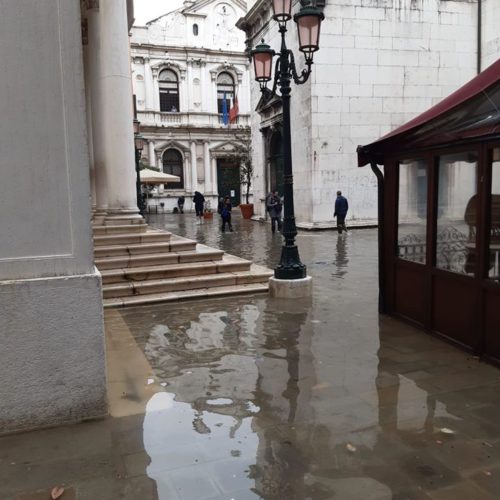
The Pacific Opera Project of LA has issued the following equivocation about its next production:
In unanimous agreement between board and staff, Pacific Opera Project has elected to change the setting of our March production of Cosi fan tutte. We recognize that some view a Gone with the Wind setting as offensive and we apologize for that offense. Appearing insensitive to these concerns is against everything POP stands for and damages our reputation as an inclusive and diverse company, something we have carefully cultivated over the past nine seasons with productions such as our Japanese/English Madama Butterfly and our Star Trek inspired Abduction from the Seraglio.
POP’s strongest quality has always been creativity — the ability to adapt and innovate to any location, circumstance, or constraint. We look forward to the challenge of reinventing a production, now only six weeks away. We’re confident that a POP Cosi — whether set traditionally, in the Civil War, or in outer space — will be one of the most accessible, affordable, and entertaining you have ever seen.
We thank our unwavering fans for your support during this time of transition and we look forward to seeing you at the show.

This week’s edition of the Finnish magazine Image carries a major investigation into sexual harrassment at the prestigious Sibelius Academy in Helsinki.
The author, Sonja Saarikoski, herself a former Sibelius student, has collected 20 testimonies of teacher-student harrassment.
None of them is named. Some are alleged to have been underage.
Sonja Saarikoski argues that sexual exploitation is part of the culture at the academy, which is probably the world’s #1 destination for conducting students and among the top for strings.
The Academy, part of Helsinki’s University of the Arts, says it will investigate.
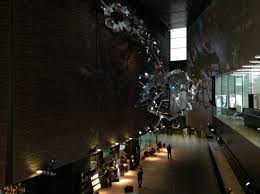
A little bit more here (in Finnish).